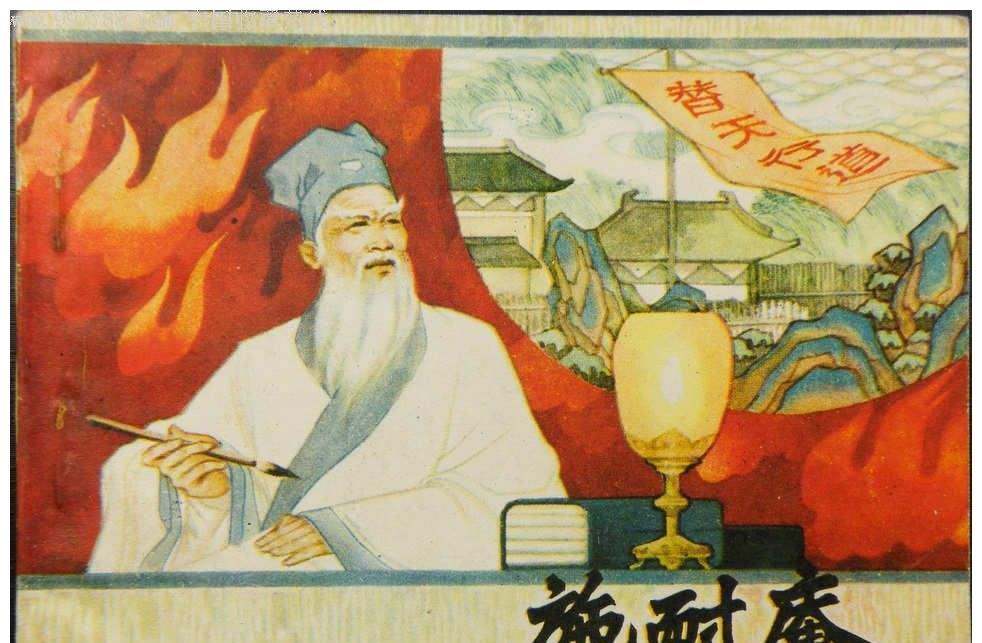The Shui Po Liang Mountain in "Water Margin" has a strong armed force. This team, starting from Chao Gai and seven other people who robbed Sheng Zhan Gang, Huo and Wang Lun, grew day by day, and later grew to 108 generals and more than 100,000 male soldiers

The historical Song Jiang is far from there
108 will
Although the real Song Jiang Uprising in history is not as ostentatious and powerful as in "Water Margin", it is also true. However, the cause is not in the "Birth Anniversary Class", and the number of leaders is not as many as 108 people. In the first year of Emperor Xuanhe of Song Hui (1119 AD), the government forcibly ordered that Liangshan Po be taken over to the "public ownership", and the fishermen along the lake were desperate, and under the leadership of Song Jiang, a native of Yuncheng County, Shandong Province, they rose up and planted the banner of resistance on Liangshan.
In October of the second year of Xuanhe (1120 AD), Hou Meng, the prefect of Bozhou, pointed out: "The Song River ran rampant in Heshuo and Jingdong with thirty-six people, with tens of thousands of officers and troops, and no one dared to resist. "The rebel army led by Song Jiang could not resist tens of thousands of officers even if they were three heads and six arms, and these 36 people should refer to the leader of the rebel army, which can be inferred that song Jiang should not have 108 generals, but 36 generals.
The scale of the Fang La uprising was far from being comparable to that of the Song River
From the failure of the SongJiang Uprising, it can also be seen that its scale is small. In February of the third year of Xuanhe (1121 AD), Zhang Shuye, the prefect of Haizhou (present-day Lianyungang, Jiangsu), "recruited thousands of dead soldiers and set up an ambush near the city", and together with the original local garrison, "burned his boat" and "captured his deputy thief (deputy general)" in one fell swoop, forcing Song Jiang to lead the remnants to surrender.
Looking at the time, it took only two years since Song Jiang was noticed by the government and finally collapsed. Judging by the scale, only the Haizhou defenders and more than a thousand dead soldiers can force them to surrender, and they will never be as recorded in the "Water Margin" with more than 100,000 elite soldiers. However, at the beginning of the Fang La Uprising, there were more than 100,000 troops, occupying "fifty-two counties in Hangzhou, Mu, She, Chu, Qu, and Wuliu Prefectures", which can be called the largest peasant uprising at the end of the Northern Song Dynasty.
Fang La pretended to be a ghost, and it was difficult to enter the eyes of Shi Nai'an
Although Shi Nai'an, the author of "Water Margin", hated corrupt officials and gentry and bullies, after all, he had been a talented and talented person at a young age, and at the age of 36, he became a jinshi of Liu Bowen's same list, and had long been educated in orthodox Confucian thought, and although he later joined Zhang Shicheng's rebel army, at this time the world was already in chaos, and the Han people rose up against the Mongol rulers of the Yuan Dynasty, which was not a great rebellion.
In Shi Nai'an's heart, Song Jiang and Fang La were both anti-thieves, but Song Jiang only plundered money and grain from beginning to end, and had no political ambitions. Fang La, on the other hand, was a big ambitionist who pretended to be a god and a ghost, and he first used a foreign religion, Manichaeism, to attract people's hearts, and later used the ghost superstition to incite and induce good people to rebel. At the beginning of the uprising, he gave speeches and incitements, changed the era name, established the honorific title, and his ambitions were clearly revealed, as if of course such anti-thieves could not be affirmed in the slightest.